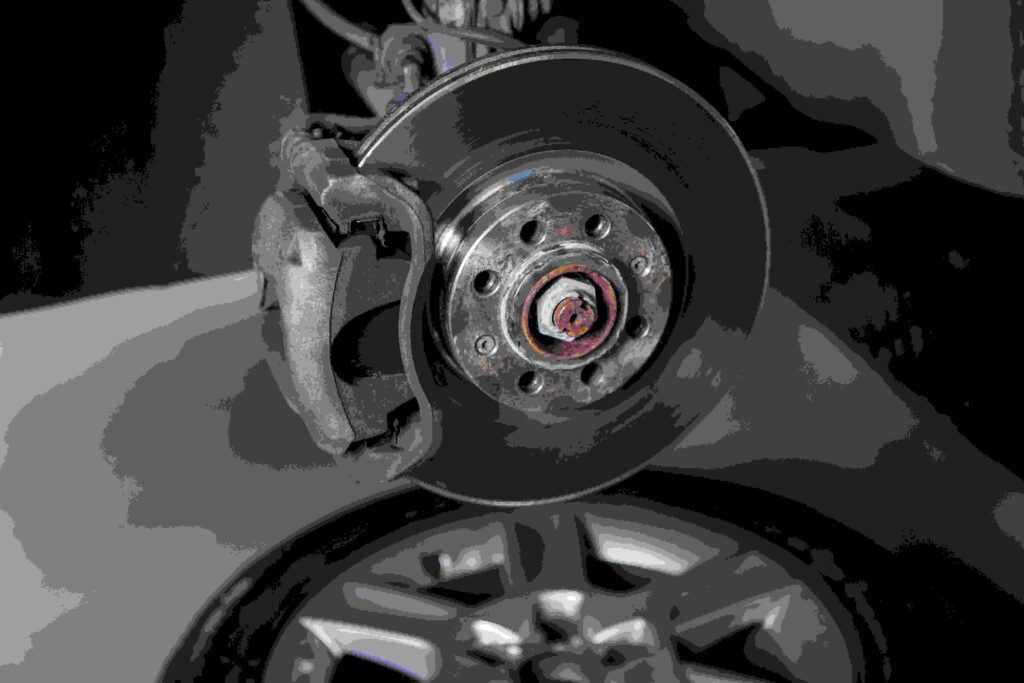A vibrating car in drive could be caused by various issues such as engine misalignment or transmission problems. These problems can affect the smooth operation of the vehicle and may require immediate attention to prevent further damage or accidents.
We will explore the potential causes of car vibrations in drive and provide some possible solutions to help you troubleshoot the issue effectively. Understanding the underlying causes of car vibrations can enable you to take prompt action and keep your vehicle in optimal condition.
So, let’s delve into the details and find out what could be causing your car to vibrate in drive.
Table of Contents
Common Causes Of Car Vibrations
Car vibrations in drive can be caused by various factors. One common cause is out-of-balance wheels, which can lead to a shaky driving experience. Worn-out or damaged tires can also contribute to vibrations, affecting the smoothness of the ride. Faulty suspension components, such as worn-out shocks or struts, can further exacerbate the problem.
Another potential culprit is an engine misfire, which can cause the car to shake while in motion. Transmission problems, such as a worn-out or damaged torque converter, can also result in vibrations. It is important to address these issues promptly to ensure a safer and more comfortable driving experience.
Regular maintenance and inspection of these components can help prevent and diagnose the cause of car vibrations.
Solutions For Car Vibrations
Car vibrations while driving can be quite unnerving and indicate underlying issues that need attention. One of the most common solutions is getting your wheels balanced and aligned. This ensures that weight is evenly distributed and reduces the chances of vibrations.
Another important aspect is replacing worn-out or damaged tires, as they can cause imbalances. Apart from the tires, it is crucial to inspect and repair any suspension components that may be worn or damaged. Engine misfire issues can also lead to vibrations, so it’s essential to address them promptly.
Lastly, checking and repairing any transmission problems can help eliminate vibrations while driving. By following these steps, you can enjoy a smooth and comfortable ride without any unwanted vibrations.
Preventive Measures To Avoid Car Vibrations
Car vibrations can be a frustrating issue for drivers, but there are preventive measures that can help. Regular maintenance and inspection are key to identifying and addressing potential problems. One important step is to rotate tires regularly to ensure even wear and improve overall balance.
Following recommended tire pressure guidelines is also essential, as proper inflation can minimize vibrations. Using quality fuel and oil can contribute to smoother engine operation and reduce vibrations. It is crucial to address any minor issues promptly before they escalate into more significant problems.
By following these preventive measures, drivers can enjoy a smoother and more comfortable ride.

Credit: www.repairsmith.com
Frequently Asked Questions For Car Vibrates In Drive
Why Does My Car Vibrate In Drive At A Stop?
Your car may vibrate at a stop due to issues with engine mounts, idle speed, or transmission problems.
Why Does My Car Vibrate When I Put It In Drive?
When your car vibrates in drive, it could be due to various reasons such as unbalanced tires, worn-out engine mounts, or transmission issues. It is important to consult a mechanic to diagnose the exact cause and ensure safe driving conditions.
How Do I Fix A Vibrating Car In Drive?
To fix a vibrating car in drive, start by checking the tire balance and alignment. If they are fine, inspect the engine mounts and replace any worn-out ones. If the issue persists, it is best to take your car to a professional mechanic for further evaluation and repair.
Can Low Fuel Cause A Car To Vibrate In Drive?
Yes, low fuel can cause a car to vibrate in drive. When the fuel level is low, the fuel pump might not be able to provide a consistent flow of fuel, leading to engine misfires and vibrations. To prevent this, make sure to maintain an adequate fuel level at all times.
Conclusion
After analyzing the possible causes and solutions for a car vibrating in drive, it is evident that addressing this issue promptly is vital. Ignoring the problem could lead to further damage and expensive repairs. By regularly maintaining your vehicle, including checking and changing fluids, inspecting the engine and transmission mounts, and ensuring the tires are balanced and aligned, you can minimize the chances of experiencing vibrations while driving.
If the problem persists, seeking professional help from a qualified mechanic is recommended. Remember, being proactive is key when it comes to car maintenance and taking proper care of your vehicle will not only ensure a smooth and comfortable driving experience but also enhance its lifespan.
So, pay attention to any vibrations you may notice and take the necessary steps to resolve them promptly. Happy and safe driving!
